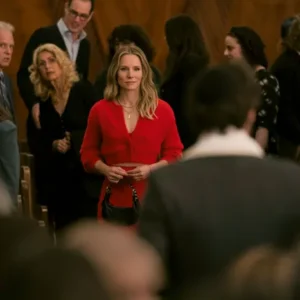.jpg)
The Rings of Power season 2 wasted no time in solving the many Halbrand mysteries that season 1 had posed. In an Amazon featurette, Sauron actor Jack Lowden confirmed that season 2’s opening flashback was set about 1000 years before the events of season 1. This flashback showed Sauron’s Jack Lowden form being traitorously murdered by Adar and the Orcs before Sauron’s spirit gradually rebuilt his body and finally assumed Halbrand’s form. Halbrand was heading toward Adar when he encountered the Southlanders, putting him on a bizarrely coincidental collision course with Galadriel.
The Rings Of Power Season 2 Confirmed Meeting Galadriel Wasn’t Sauron’s Plan
Galadriel And Sauron Met By Chance, If Chance You Call It
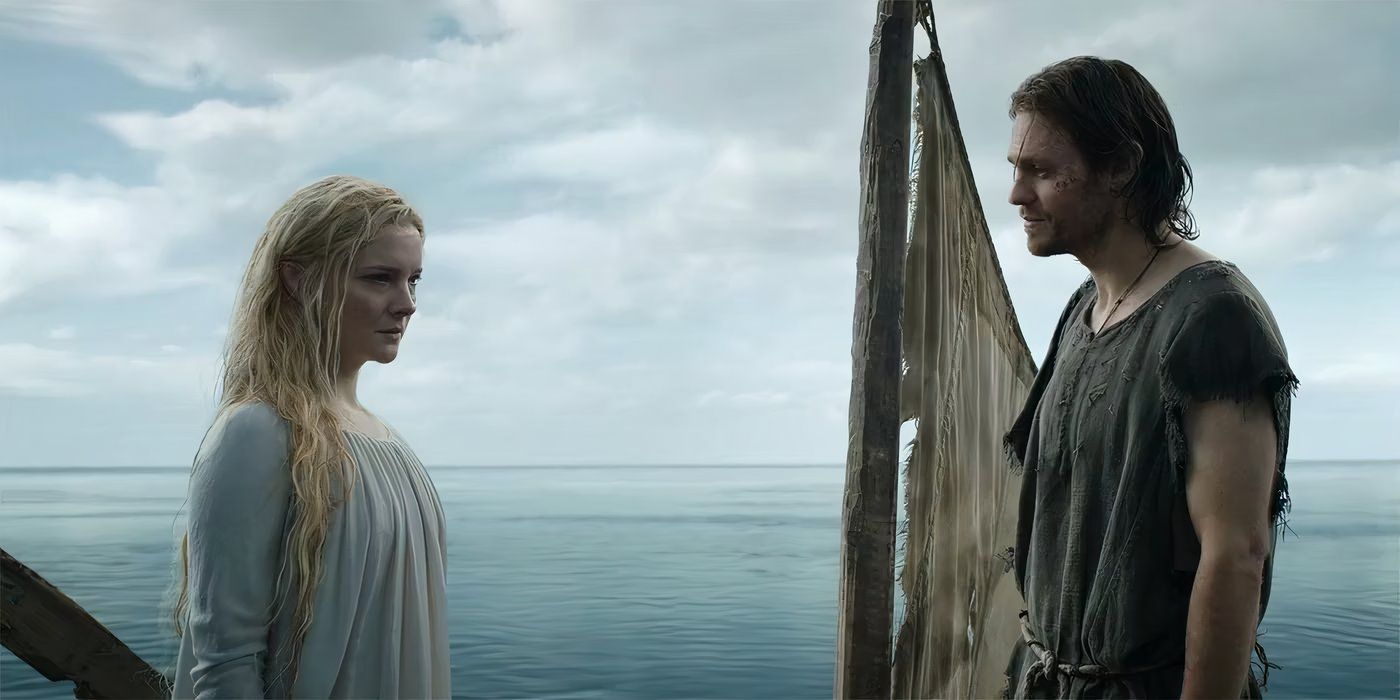
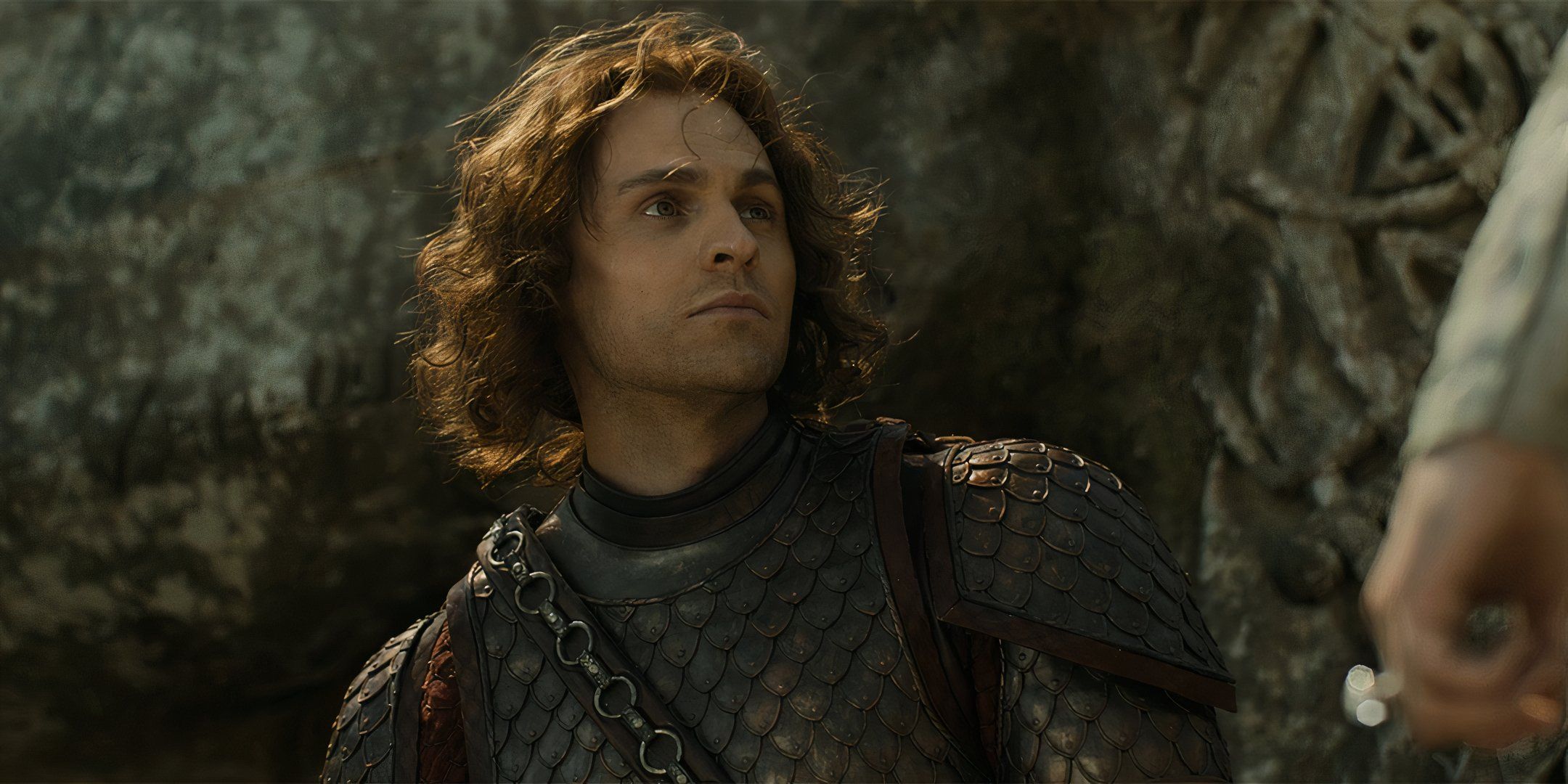
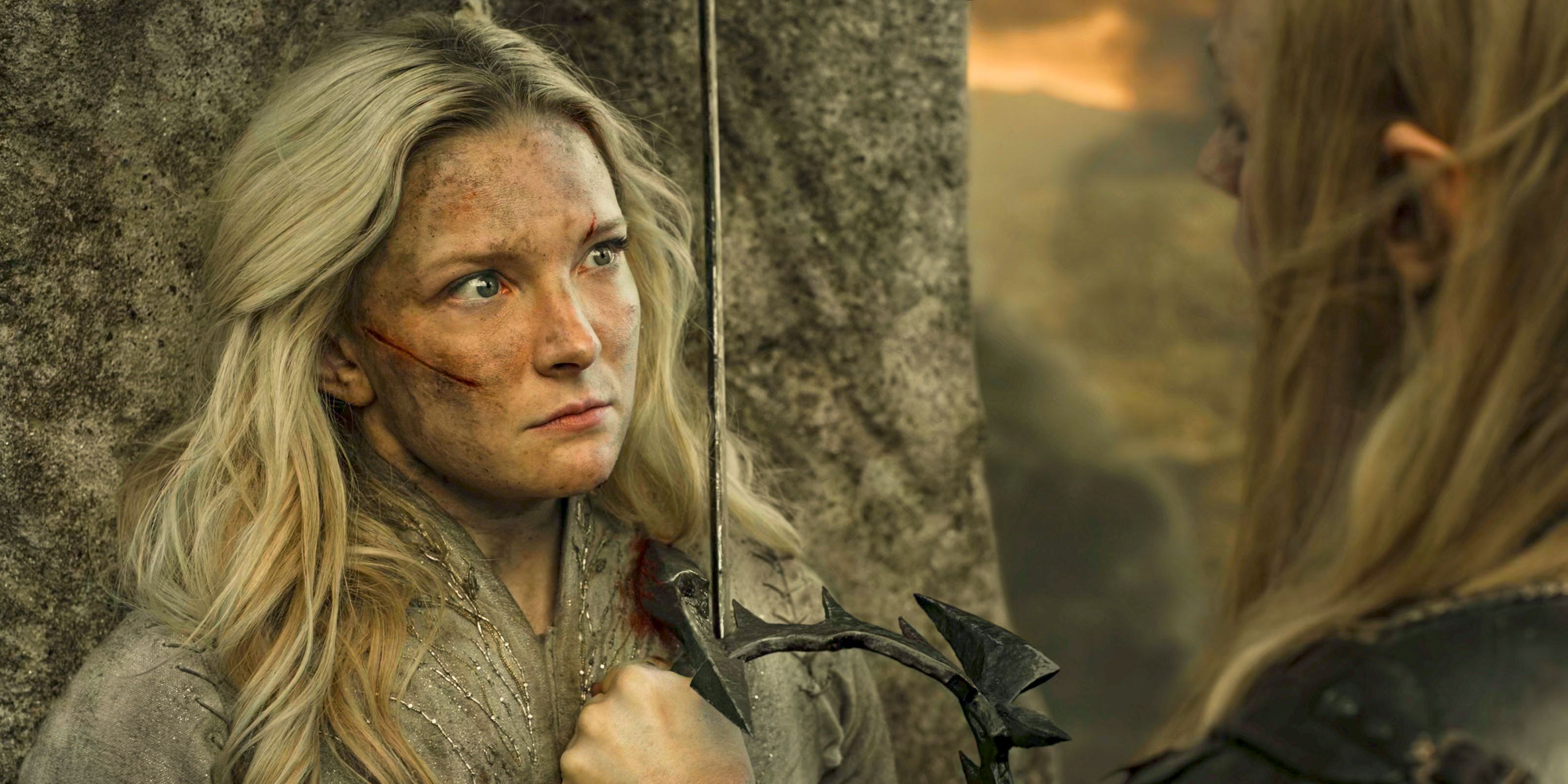
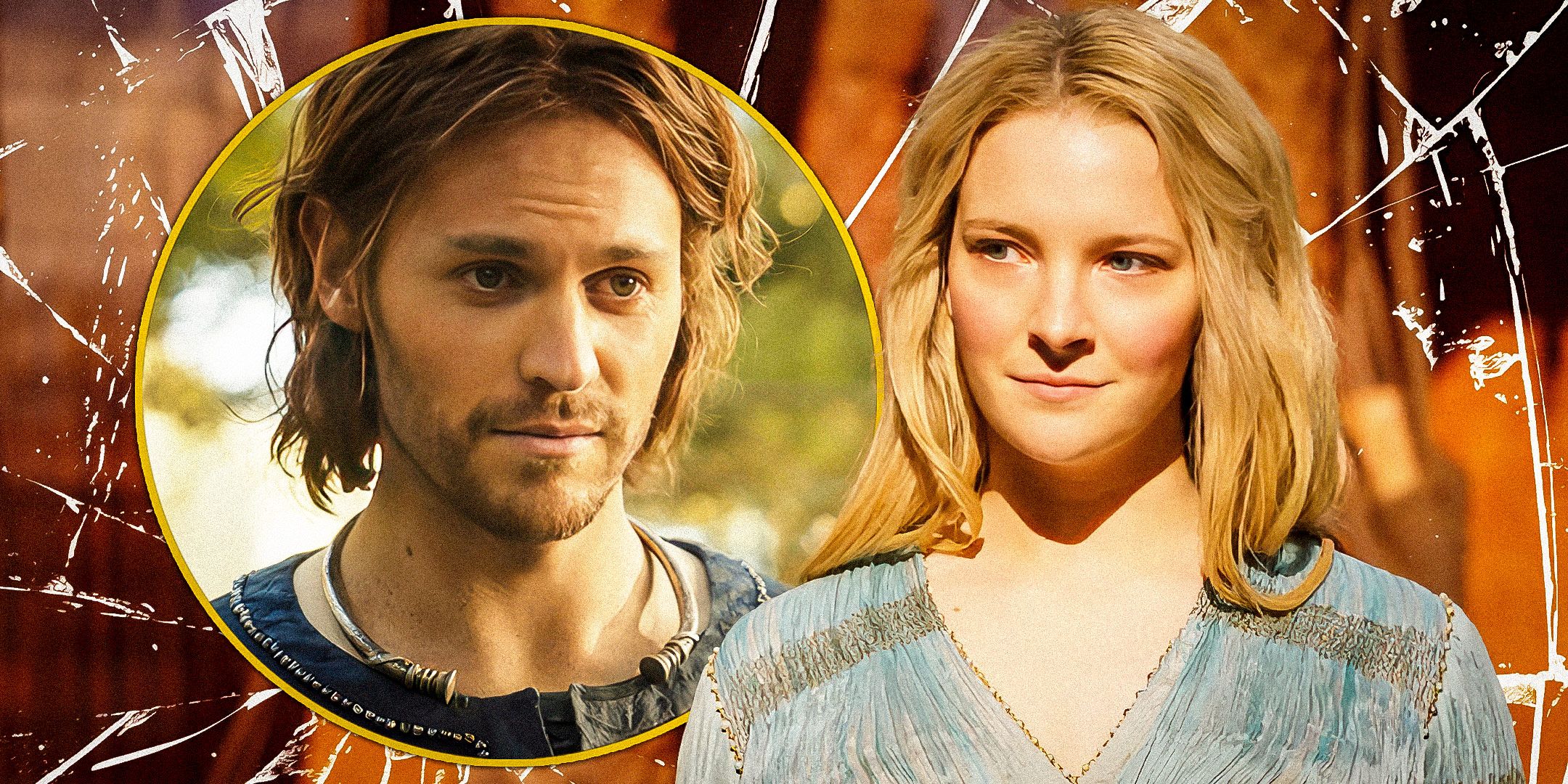
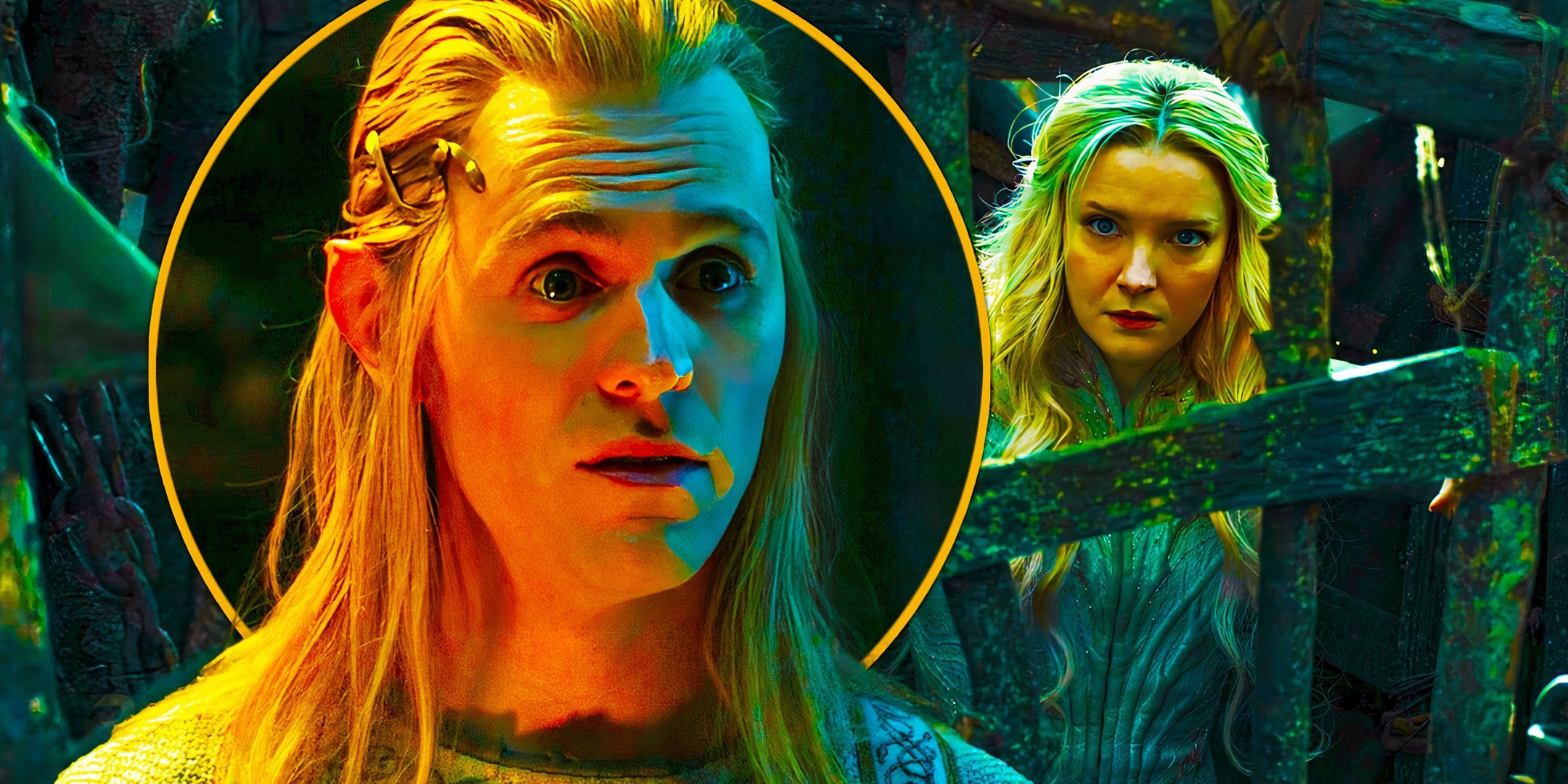





If asked to explain his meeting with Galadriel on the Sundering Seas, Sauron may as well use Tom Bombadil’s immortal lines in The Lord of the Rings: “Chance brought me then, if chance you call it.” Contrary to what many believed after watching season 1, Sauron did not plan to meet Galadriel on the Sundering Seas. Although Sauron’s scheming clearly knew few bounds, it couldn’t quite stretch to engineering a meeting of two overboard strangers in the middle of the ocean. That is probably fair enough. Rather, Sauron was minding his own shipwrecked business when Galadriel appeared.
When Sauron bumped into the Southlanders, he opportunistically changed course. Instead of running recklessly back into Adar’s camp, he took the Southlanders up on their offer of pursuing a new life overseas. Sauron’s decision was strategic too. On seeing the crest of the King of the Southlands usefully held by one of them, Sauron started conceiving of his new undercover identity. Sauron was probably thrilled to hear the marine nameless thing approach, knowing he could survive the attack, but most Southlanders couldn’t. It allowed him to adopt the King of the Southlands crest just in time for Galadriel’s unexpected arrival.
There Are No Coincidences In Middle-Earth, Only Eru’s Design
J.R.R. Tolkien Was Clear On Chance Meetings In Middle-Earth
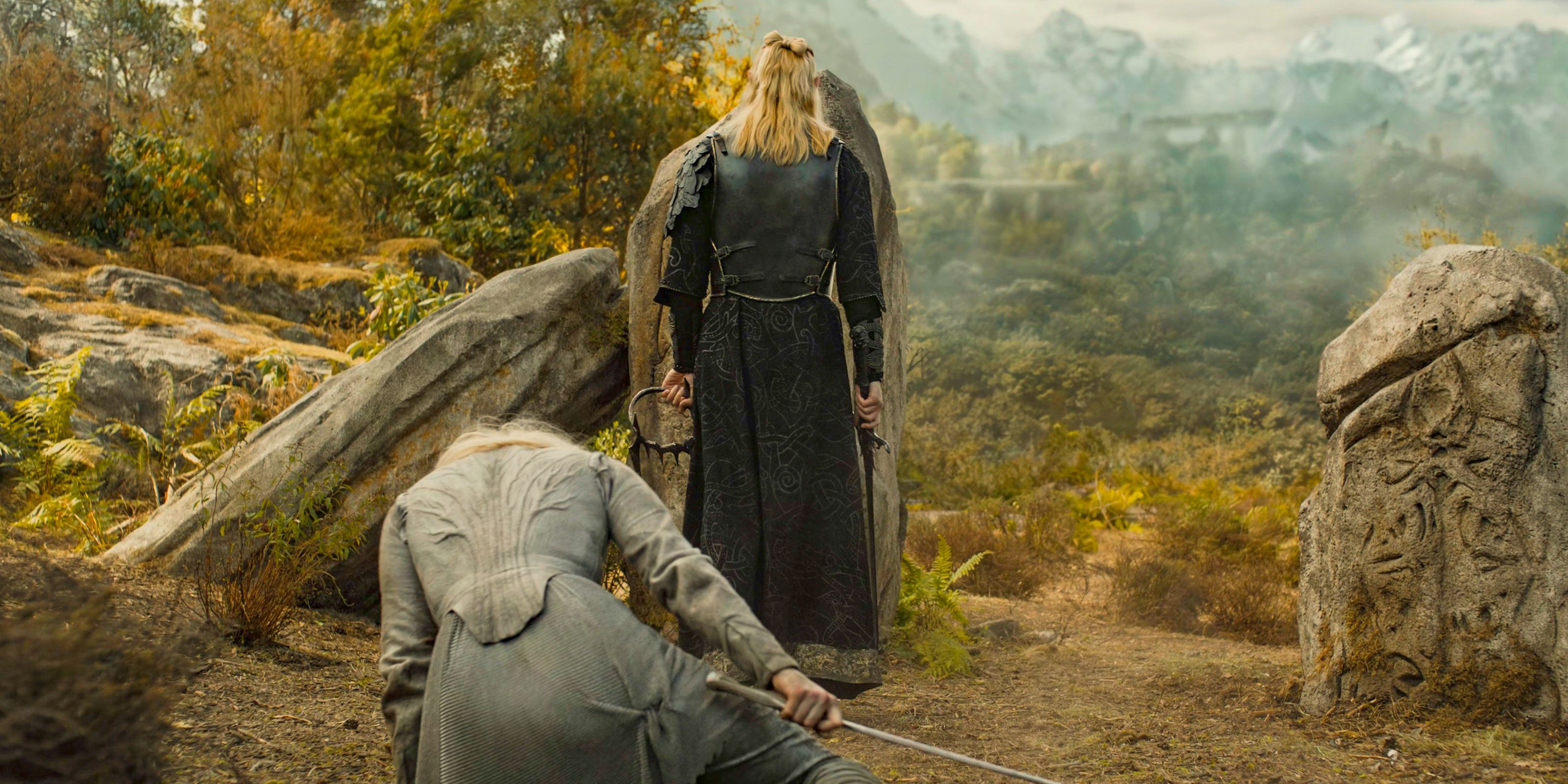
Galadriel was wiser than she seemed in season 1 when she said to Sauron: “Ours was no chance meeting. Not fate, nor destiny, nor any other words men use to speak of the forces they lack the conviction to name. Ours was the work of something greater. You must see it.” Indeed, there is no such thing as a chance meeting in Middle-earth, as J.R.R. Tolkien proved time and time again. There are only more meaningful coincidences, and less meaningful coincidences. Rings of Power showrunners J.D. Payne and Parick McKay confirmed to Radio Times that Galadriel was right:
And then there’s the Tolkien idea of chance meetings. That is a thing throughout his books and that he’s obsessed with over and over again. The chance meetings are preordained in Middle-earth and that idea of like, ‘My God, what if Sauron is in a place where he’s sort of repentant and lost and Galadriel is in a place where she’s desperate and obsessed with a meeting? What might happen? Well, first of all, maybe they’d be friends. Maybe they get a long and the idea of a non-romantic, you know, cosmic connection… That seemed so pregnant with possibilities.
Payne and McKay were intrigued by Galadriel’s lines to Frodo in Lord of the Rings signaling that Sauron had been reaching for her telepathically for millenia but “still the door [was] closed.” They wanted to explore the history that this implied, which they did through a Tolkienian chance meeting. Coincidences in Middle-earth were the work of the One Eru Ilúvatar. Tom Bombadil knew it and so did Elrond, discussing the coincidental meeting of the Fellowship: “You have come and are here met… by chance as it may seem. Yet it is not so. Believe rather that it is so ordered.”
Why Middle-Earth’s God Might’ve Wanted Sauron And Galadriel To Meet
Eru Ilúvatar Was Never Absent
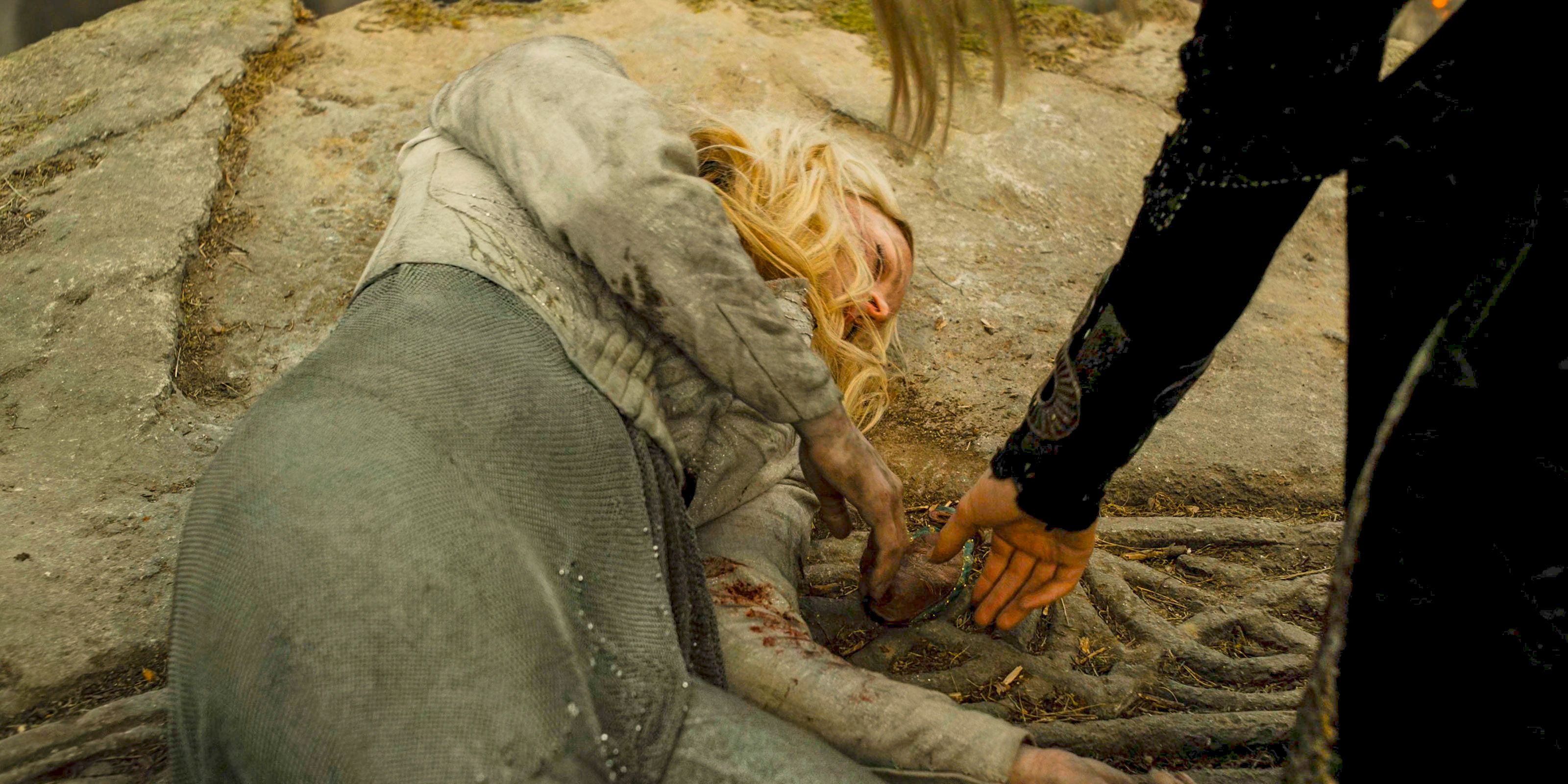
In The Rings of Power’s logic, Sauron and Galadriel set each other free to be who they really were, and that was Eru’s intention when he threw them together. Cosmic connections, per their modern definition, can be platonic, professional, romantic, or simply profound without a known tether or direction. But they are fated beyond the control of all participants. Director Charlotte Brändström highlighted romantic subtext (via Nerdist). Whether romantic or not, the “cosmic connection” between Sauron and Galadriel commonly referred to by cast and crew is a spiritually ordained one. Only now is the full extent clear.
Eru needed Sauron and Galadriel to start living their Second Age.
Tolkien confirmed in letter 192 that throughout the entire legendarium, Eru Ilúvatar is “that one ever-present Person who is never absent and never named,” responsible even for pushing Gollum into Mount Doom. Knowing this, the showrunners positioned Eru as the nudging finger that guided Galadriel to Sauron’s raft. That Middle-earth’s God wanted Sauron and Galadriel to meet is a pretty hot take, at first glance. But a tumbleweed was rolling across Middle-earth’s history after the War of Wrath. The showrunners’ Eru decided to act, compelling Sauron and Galadriel to start living their Second Age.
Middle-earth’s God wanted Sauron and Galadriel to meet because they were both in a slump.
While Sauron and Galadriel did meet in Eregion in the Second Age of Middle-earth in Unfinished Tales, The Rings of Power’s Halbrand arc is original material. In the show’s logic, Middle-earth’s God wanted Sauron and Galadriel to meet because they were both in a slump after the cataclysmic and universally depressing War of Wrath. Morgoth got cast into the void, Beleriand sank, and everyone lost. The one God and creator saw that Sauron and Galadriel were both flagging, which wouldn’t do, given that they were key players in his grand plan. As capricious as this seems, the truth is more complex.
Is Middle-Earth’s God Cruel And Uncaring?
Eru Ilúvatar Can Seem Enigmatic
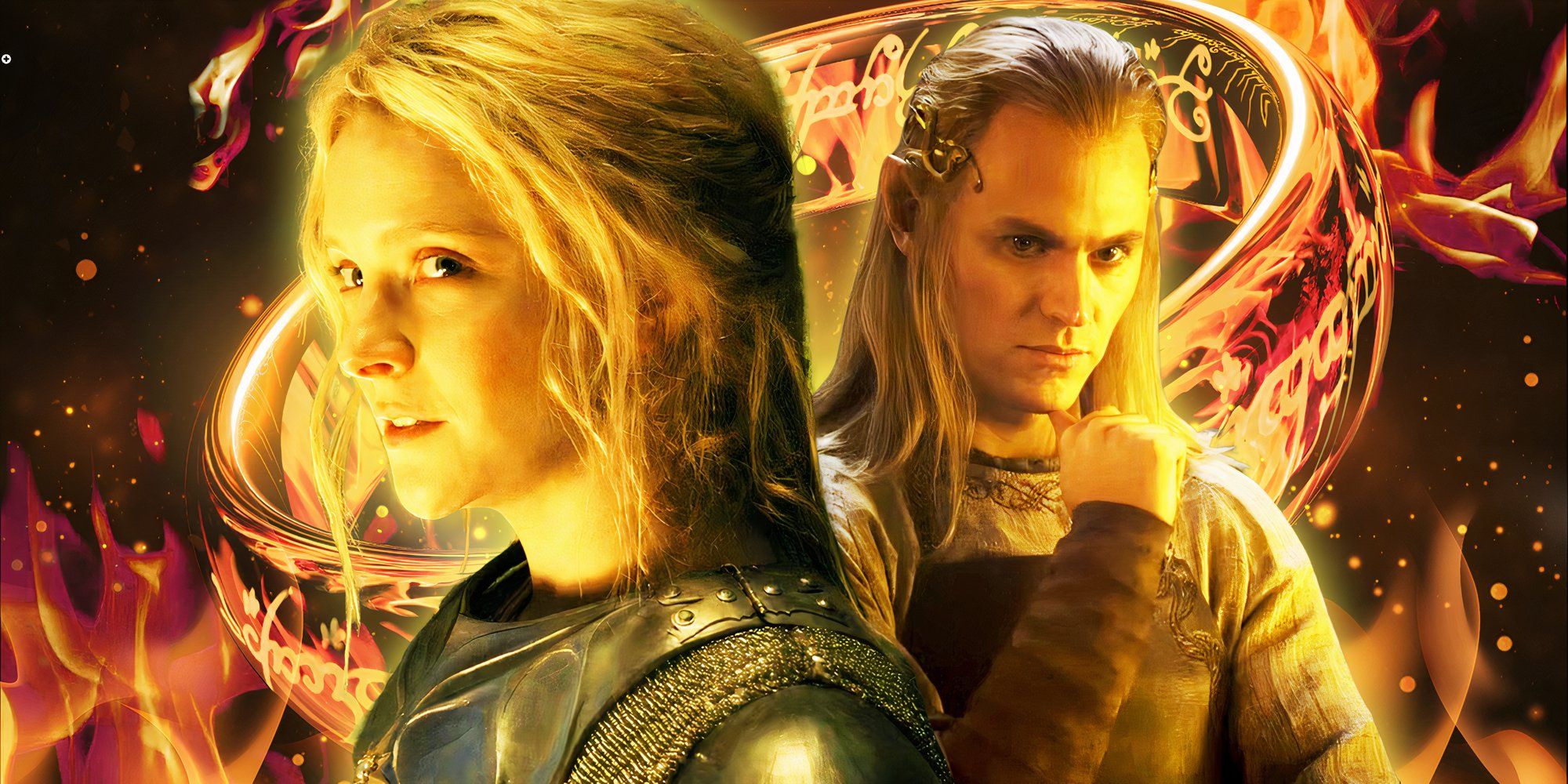
No, Middle-earth’s God is not cruel and uncaring, however enigmatic he may seem. If there was one thing that was made clear in The Lord of the Rings, it was that. Although Lord of the Rings is not itself an allegory, Eru Ilúvatar was modeled after Tolkien’s Catholic God. The Catholic God’s motives are a debate as old as time. However, while discussing the coincidence of Bilbo finding the One Ring, Gandalf made things clear as far as the legendarium went. Eru was behind coincidence, and coincidence rewarded love, kindness, and pity, while punishing the tyrannical pursuit of power. As the wizard put it:
There was more than one power at work, Frodo. The Ring was trying to get back to its master … Behind that there was something else at work, beyond any design of the Ring-maker. I can put it no plainer than by saying that Bilbo was meant to find the Ring, and not by its maker. In which case you also were meant to have it.
Ilúvatar was not subject to time as humans know it in the Timeless Halls. He was managing the past, present, and future, all at the same “time.” Non-Gods can’t understand or respect his decisions, but they did culminate in the richest and most beautiful possible world. This was Tolkien’s view, following on from a Roman philosopher called Boethius, who Tolkien scholars Tom Shippey and Corey Olsen agree had a profound influence on Tolkien. It seems Galadriel and Sauron experienced the Tolkienian chance meeting of a Boethian authority in The Lord of the Rings: The Rings of Power.
News
Nobody Wants This Renewed For Season 2 (With One Major Change)
Nobody Wants This, the new Netflix romantic comedy starring Kristen Bell and Adam Brody, has been renewed just weeks after its debut. — but there’s one big change. Created by Erin Foster, partially based on her own experiences falling for…
Erin Foster feared ‘Nobody Wants This’ would lead to her own divorce — as it gets Season 2 pickup
Well, nobody wants that. Erin Foster was worried she’d get divorced over her new Netflix rom-com series “Nobody Wants This,” which stars Adam Brody and Kristen Bell. “When I met Simon, and kind of settled into this healthy relationship, I was in the…
This Is how 3 Jewish Converts React to ‘Nobody Wants This’
Photo: /STEFANIA ROSINI/NETFLIX In late September, the ten-episode rom-com Nobody Wants This premiered on Netflix, telling the story of a winsome Los Angeles romance between a cynical sex-podcaster, Joanne (Kristen Bell), and Noah (Adam Brody), a hot young rabbi she meets at…
Justine Lupe Recalls Moment She Told Kristen Bell She Was Pregnant While Filming Nobody Wants This: She Was ‘Freaking Out’
The actress, 35, was over five months pregnant while filming the Netflix series Justine Lupe, Kristen Bell. Photo: Olivia Wong/Getty Justine Lupe will never forget the moment she revealed to costar Kristen Bell that she was expecting her first baby. As a guest on The Jennifer…
8 Movies & Shows Like ‘Nobody Wants This’ to Binge After You Finish the Hit Netflix Series
SAEED ADYANI/NETFLIX In case you missed it, Netflix’s Nobody Wants This is the latest show to take the streaming universe by storm—and it’s already claimed the #1 spot on the platform’s most-watched list this week. With its quirky, fun moments and a love story that’s both complicated and…
Anne Hathaway apologises to journalist after an interview of her being ‘awful’ goes viral
Remember Norwegian journalist Kjersti Flaa? If she rings bells, it’s because in the height of the Blake Lively drama when It Ends With Us was never out of the headlines, Kjersti Flaa went viral for an interview with Blake Lively…
End of content
No more pages to load


